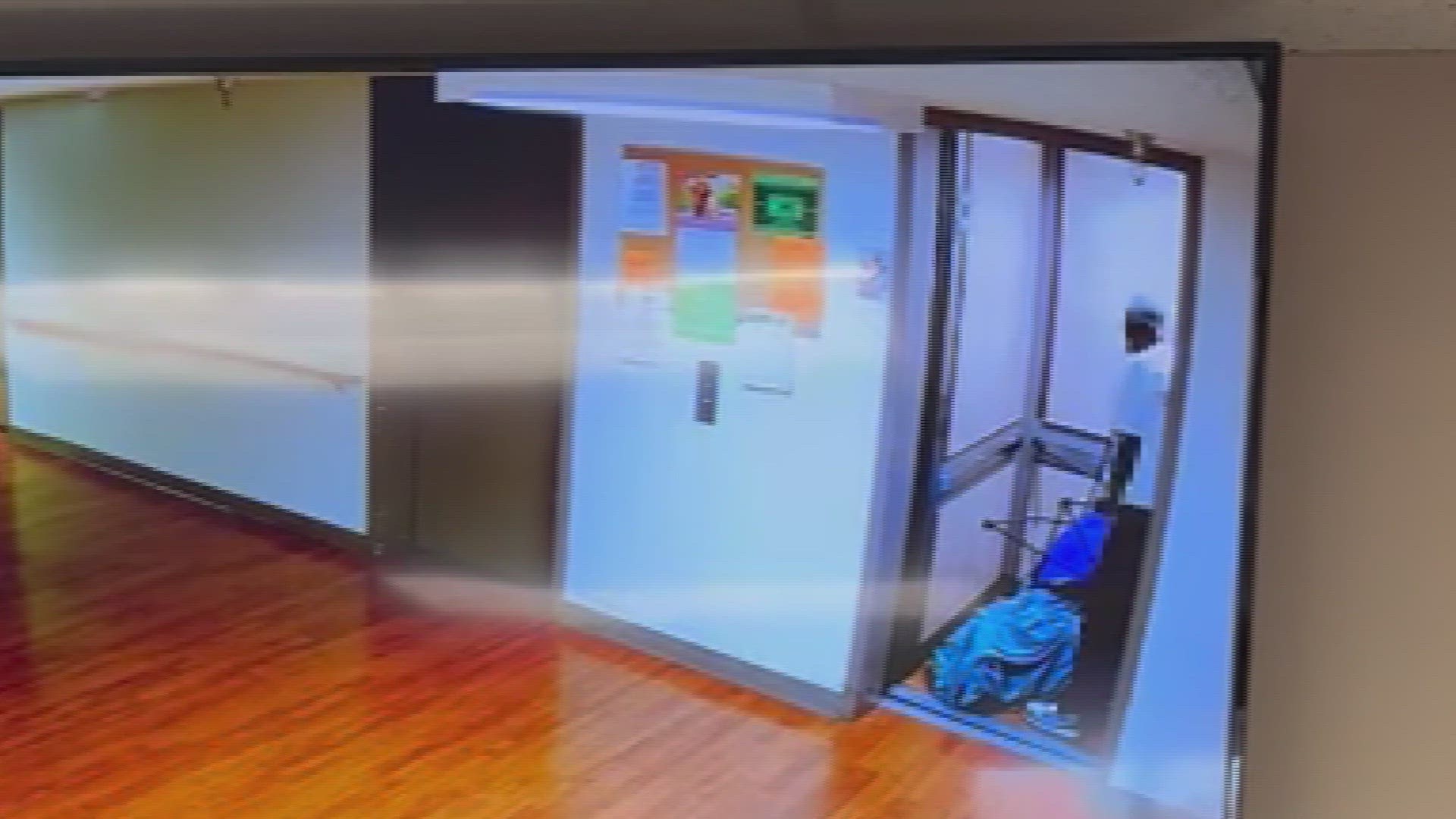Search resumes for murder victim's body have become a critical aspect of modern crime investigation. The process involves meticulous efforts by law enforcement agencies, forensic experts, and investigative teams to locate missing persons and gather evidence in murder cases. This topic has gained significant attention due to its complexity and the emotional impact it carries for families and communities affected by such crimes.
In recent years, advancements in technology and forensic science have revolutionized the way authorities approach these investigations. However, the human element remains crucial, as search operations require not only technical expertise but also empathy and dedication. Understanding the methods and challenges involved in these searches can provide valuable insights into the criminal justice system and the importance of public cooperation.
This article delves into the intricate process of resuming searches for murder victims' bodies, exploring the techniques used, the challenges faced, and the ethical considerations involved. By examining real-life cases and expert opinions, we aim to shed light on this critical aspect of crime investigation while maintaining sensitivity toward the victims and their families.
- Hdhub4uin Movies Your Ultimate Destination For Highquality Entertainment
- Discover The Ultimate Guide To Moviehub4 Your Goto Streaming Platform
Table of Contents
- Introduction to Search Resumes for Murder Victim's Body
- A Brief History of Search Operations
- Methods Used in Resuming Searches
- Challenges in Searching for Murder Victims
- The Role of Technology in Modern Investigations
- Forensic Techniques in Locating Bodies
- Legal and Ethical Considerations
- Real-Life Cases and Their Outcomes
- The Importance of Public Involvement
- Future Trends in Search Operations
Introduction to Search Resumes for Murder Victim's Body
Search resumes for murder victim's body are an essential part of the criminal investigation process. When initial searches fail to yield results, investigators may need to revisit the case, reevaluate evidence, and employ new methods to locate the missing person. This phase often involves collaboration between multiple agencies, forensic experts, and sometimes even the public.
Resuming a search requires a comprehensive understanding of the crime scene, the victim's last known whereabouts, and any potential leads that may have been overlooked. Investigators must also consider environmental factors, such as weather conditions and terrain, which can impact the search's success. This section explores the initial steps taken when a search is resumed and the importance of maintaining a structured approach.
A Brief History of Search Operations
The history of search operations for murder victims dates back centuries, with early methods relying heavily on human intuition and physical exploration. As societies evolved, so did the techniques used in these investigations. The introduction of forensic science in the late 19th century marked a turning point, enabling investigators to gather more reliable evidence and improve their chances of success.
- Hdb4u Movies Hub Your Ultimate Destination For Entertainment
- Fikfap Doesnt Work A Comprehensive Guide To Understanding The Issue
Early Search Techniques
In the past, search operations were often conducted by local communities or law enforcement officers with limited resources. These efforts were primarily manual, involving large groups of people combing through areas where the victim was believed to be located. While these methods were effective in some cases, they were time-consuming and often yielded inconclusive results.
Modern Developments
Today, search operations benefit from cutting-edge technology and scientific advancements. Drones, ground-penetrating radar, and DNA analysis are just a few examples of tools now available to investigators. These innovations have significantly enhanced the efficiency and accuracy of search resumes for murder victim's body, leading to more successful outcomes.
Methods Used in Resuming Searches
When resuming a search for a murder victim's body, investigators employ a variety of methods to increase their chances of success. These methods can be broadly categorized into physical, technological, and analytical approaches.
Physical Search Techniques
- Ground searches involving teams of trained personnel
- Use of search dogs to detect human remains
- Excavation of potential burial sites based on witness testimony or evidence
Technological Tools
- Drones equipped with thermal imaging cameras
- Ground-penetrating radar to detect anomalies beneath the surface
- Satellite imagery to analyze large areas quickly
Analytical Methods
- Reviewing existing evidence and witness statements
- Collaborating with forensic psychologists to develop profiles of suspects
- Utilizing data analytics to identify patterns or connections
Challenges in Searching for Murder Victims
Despite the advancements in technology and methodology, search resumes for murder victim's body face numerous challenges. These challenges can hinder the progress of investigations and prolong the emotional distress experienced by the victims' families.
Environmental Factors
Weather conditions, such as heavy rainfall or snowfall, can obscure evidence and make it difficult for search teams to access certain areas. Additionally, rugged terrain or dense vegetation may complicate efforts to locate the victim's remains.
Human Error
Mistakes made during the initial investigation or search can lead to missed opportunities for finding the victim. This highlights the importance of thorough documentation and communication between team members throughout the process.
Resource Limitations
Law enforcement agencies often operate with limited budgets, which can restrict the resources available for extensive search operations. Prioritizing cases and allocating resources effectively is crucial to ensure that all efforts are maximized.
The Role of Technology in Modern Investigations
Technology has revolutionized the field of criminal investigation, particularly in the area of search resumes for murder victim's body. Innovations such as drones, DNA analysis, and artificial intelligence have transformed the way investigators approach these cases, offering new possibilities for locating missing persons and solving crimes.
Drones and Aerial Surveillance
Drones equipped with high-resolution cameras and thermal imaging technology allow investigators to cover large areas quickly and efficiently. This capability is especially valuable in rural or remote locations where traditional search methods may be impractical.
DNA Analysis
Advances in DNA technology have enabled investigators to identify victims and link suspects to crime scenes with unprecedented accuracy. This has led to the resolution of many cold cases and provided closure for families who had long been searching for answers.
Artificial Intelligence
AI algorithms can analyze vast amounts of data to identify patterns and connections that might not be immediately apparent to human investigators. This technology has the potential to streamline the investigative process and improve the success rate of search operations.
Forensic Techniques in Locating Bodies
Forensic science plays a vital role in search resumes for murder victim's body. By analyzing physical evidence and biological samples, forensic experts can provide valuable insights into the circumstances surrounding a victim's death and help guide search efforts.
Autopsy and Pathology
Autopsies conducted on recovered remains can reveal critical information about the cause and time of death, aiding investigators in narrowing down potential suspects and locations. Pathologists may also examine environmental factors, such as soil or plant material, to determine where the body was located.
Entomology
The study of insects found on or near a body can provide clues about the time of death and the conditions under which the body was discovered. Forensic entomologists analyze insect activity to estimate the postmortem interval and assist in search efforts.
Legal and Ethical Considerations
Search resumes for murder victim's body must adhere to legal and ethical standards to ensure the integrity of the investigation and protect the rights of all parties involved. Investigators must balance the need for thoroughness with the potential impact on individuals and communities affected by the case.
Search Warrants and Privacy
Obtaining proper authorization through search warrants is essential to avoid violating individuals' privacy rights. Investigators must carefully document their actions and ensure compliance with relevant laws and regulations.
Family and Community Sensitivity
Handling cases involving missing or deceased individuals requires empathy and sensitivity toward the victims' families and the broader community. Investigators should maintain open lines of communication and provide updates as appropriate to help alleviate uncertainty and anxiety.
Real-Life Cases and Their Outcomes
Examining real-life cases of search resumes for murder victim's body can provide valuable lessons for investigators and the public alike. These cases highlight the complexities involved in such investigations and demonstrate the importance of persistence and collaboration.
The Amanda Berry Case
In 2013, the case of Amanda Berry, who had been missing for over a decade, captured national attention when she was found alive in Cleveland, Ohio. The successful resolution of this case was attributed to a combination of public tips, investigative diligence, and technological advancements.
The Madeleine McCann Case
The disappearance of Madeleine McCann in 2007 remains one of the most high-profile missing person cases in recent history. Despite extensive search efforts and numerous leads, her whereabouts remain unknown, underscoring the challenges faced in such investigations.
The Importance of Public Involvement
Public involvement can play a crucial role in search resumes for murder victim's body. By encouraging community members to report suspicious activity or provide tips, investigators can expand their reach and increase the likelihood of finding the victim.
Raising Awareness
Media coverage and public awareness campaigns can help generate interest in missing person cases and motivate individuals to come forward with information. Social media platforms have proven particularly effective in reaching large audiences quickly.
Collaboration with Volunteers
In some cases, law enforcement agencies partner with volunteer organizations to assist in search efforts. These collaborations can enhance the effectiveness of operations while fostering a sense of community engagement and support.
Future Trends in Search Operations
As technology continues to evolve, the future of search resumes for murder victim's body holds promising possibilities. Innovations in artificial intelligence, robotics, and biotechnology may further enhance the capabilities of investigators and improve the chances of successful outcomes.
AI-Powered Search Systems
Artificial intelligence systems designed specifically for search operations could analyze vast amounts of data in real-time, identifying potential leads and guiding investigators to promising locations.
Robotic Assistance
Robots equipped with sensors and navigation systems could explore difficult-to-reach areas, such as underwater environments or collapsed structures, providing valuable information to search teams.
Kesimpulan
Search resumes for murder victim's body represent a critical component of modern criminal investigations. By employing a combination of traditional methods and cutting-edge technology, investigators can improve their chances of locating missing persons and bringing closure to grieving families. However, these efforts must be conducted with sensitivity and adherence to legal and ethical standards to ensure the integrity of the investigation.
We encourage readers to share this article with others who may be interested in learning more about this important topic. Additionally, if you have any questions or comments, please feel free to leave them below. Together, we can promote greater awareness and understanding of the challenges and triumphs involved in search resumes for murder victim's body.
- Nikki Mudarris Net Worth 2025 The Ultimate Guide To Her Wealth And Success
- Wwwmovierulescom Telugu Your Ultimate Destination For Telugu Movies


